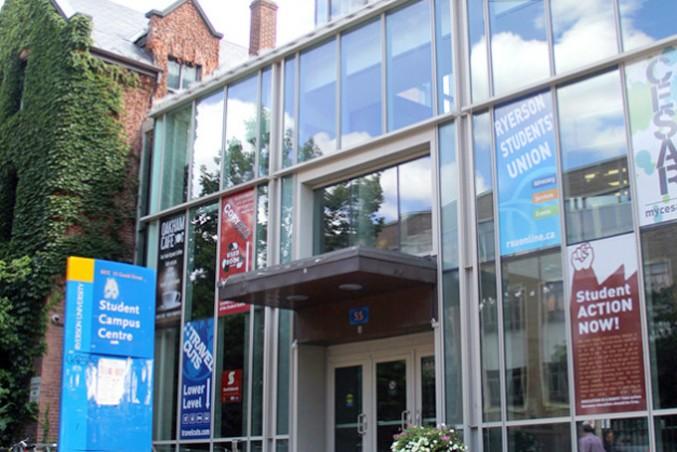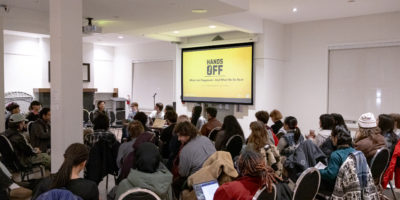By Jacob Dubé
Ryerson’s equity service centres have published a report that proposes seeking a student levy to cover their growing costs.
The service centres, which include The Centre for Women & Trans People, The Good Food Centre, Racialised Students’ Collective, RyeAccess, RyePride and the Trans Collective, are proposing a two-dollar per-student levy that would possibly replace their annual budget given to them by the Ryerson Students’ Union (RSU).
Equity and campaigns organiser Corey Scott said that there were many options available when he created the report, but a student levy seemed the most obvious.
“It’s a good way to make sure that, especially in a scenario where the equity service centres fall under the students’ union, [they] know they have this budget set aside,” Scott said.
He said that a lot of other similar organizations across Canada, like the University of Toronto’s Students for Barrier-free Access, have a student levy in place — allowing them to have a reserve that helps them plan for deficits. Under the current structure, he said that isn’t feasible.
“The problem is because we’re organizations within another organization, the strategic growth is a bit fluctuating. It’s difficult to figure out what that growth will look like year to year,” Scott said. “So having a dedicated levy allows each of those equity service centres or all the equity service centres collectively to strategically grow together.”
According to the first semester revenues and expenditures report, the equity service centres were nearly $16,000 over their $45,615 budget for the 2015-2016 year by August.
Vice-president equity Rabia Idrees said that in previous years, the equity service centres had more spending freedom, and this year’s RSU has implemented more controls to make sure their expenses are in check.
“I guess that shift has been different for the equity service centres because there are people that worked there last year that are still working there this year, so I guess it’s a drastic change that they feel,” Idrees said. “But at the end of the day, it’s better to do it that way to make sure what’s being spent is within the budget.”
According to RSU president Andrea Bartlett, implementing a levy would require tuition fees to increase by the two dollars per student, as proposed.
The equity service centres have, in the past, campaigned and participated in events centered on fighting tuition costs, such as this summer’s pride week theme “Free Love, Free Education.” Their website also mentions rising tuition fees in Ontario, and “by working together and organizing campaigns and initiatives, we can make change and win major victories for students.”
Bartlett said the equity services all took a firm stance on not increasing tuition, and that RSU vice-president education Cormac McGee has been criticised by former equity service centre employees about his stance on tuition fees.
“I think that’s it’s ironic that, if it’s indeed a levy, that the groups who are fighting against us to decrease tuition fees are now asking us to lobby to go through a referendum to increase them again,” Bartlett said.
Scott said the equity service centres have not taken a clear stance on tuition fees, but they have historically been active in tuition reform, especially for marginalized students.
RSU vice-president operations Obaid Ullah said the options for a levy are either to have a referendum through the RSU, or the equity centres would form a separate society and hold their own. But Idrees said societies are usually faculty-based, so the membership of the society would be harder to pin down.
“I don’t know if there’s an underlying them-versus-us mentality that’s going on in the ESC, I don’t know what’s going on,” Idrees said. “I don’t know if they have any personal problems with us because we are the different Transform team. That might have made them want to start their own society, separate from the RSU.”













Leave a Reply